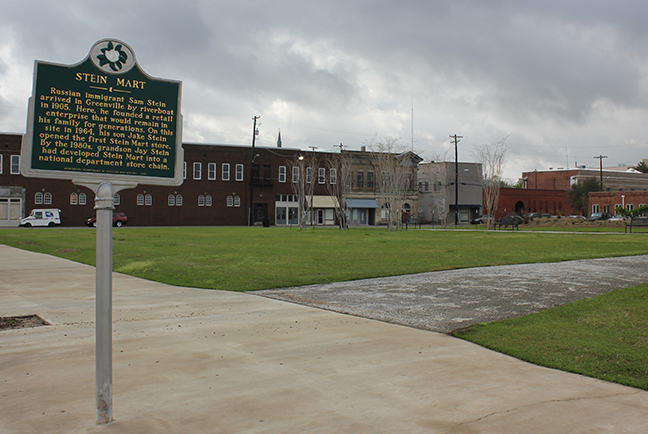Stein-Mart, which has Jewish Mississippi Delta origins, files bankruptcy
Stein-Mart, a 283-store retail chain with roots in Mississippi’s Jewish community, announced today that it is filing for Chapter 11 bankruptcy and will close “a significant portion, if not all,” of its stores, which are in 30 states.
“The combined effects of a challenging retail environment coupled with the impact of the Coronavirus pandemic have caused significant financial distress on our business,” Chief Executive Officer Hunt Hawkins said in a statement. “The Company lacks sufficient liquidity to continue operating in the ordinary course of business” and determined the best course of action would be to liquidate its assets in a going out of business sale.
The going out of business sales are expected to begin this weekend, with stores closing by the fourth quarter.
The release said that “any and all strategic alternatives” are being evaluated, including the sale of its e-commerce business and intellectual property.
In June, the company had indicated in a regulatory filing that with the pandemic, there was “substantial doubt” the company would make it into next year.
Over 40 major retailers have filed for bankruptcy this year, up sharply from last year.
The company closed its retail locations on March 18, reopening its stores with reduced hours starting in April. But in the first quarter, before the pandemic kicked in, sales had fallen to $124 million from $314 million in the same quarter a year earlier. In February, the chain had 9,000 employees, and as of May 30 there were 8,400 employees, with 5,200 furloughed.
Total sales in 2019 were $1.22 billion, down from $1.36 billion in 2016.
A planned merger that had been agreed to in January was also terminated in April.
Sam Stein immigrated from Russia to New York in 1905, fleeing from the czar and his disapproving family, with $43 in his pocket and settled in Greenville, Miss. As with so many other new Jewish arrivals, he started off as a traveling peddler, selling to farmers throughout the Delta. He eventually was attacked, shot in the arm and robbed on the way to Vicksburg.
After recovering, Stein sold jewelry in front of Finlay’s Drug Store in Greenville, and having attracted backers, opened a clothing store, known as Sam Stein, in downtown Greenville in 1908. Unlike other merchants who sought a high-end clientele, Stein stayed with his peddling roots and offered affordable merchandise to less-affluent whites and blacks.
Stein’s four children helped grow the store, with Jake taking the reins in 1932. Jake Stein was president of the Chamber of Commerce and the city’s minor league baseball team, and served on the city council. He struck a deal with Saks Fifth Avenue to receive their returns and unsold merchandise, and transitioned the store from general goods to being a discount retailer, with hefty discounts off department store prices.
When Jake Stein enlarged the store, he wanted to give it a new name. An uncle referenced a friend in Arkansas who was using the “mart” suffix to his name, Sam Walton.
Jake’s son, Jay, attended the retail sales program at New York University, then came back to succeed him as chief executive officer in the 1970s.
Jay and Jake would clash over the idea of expanding, but Jay saw the volume of sell-off goods from high-end retailers and figured there would be other cities besides Greenville that would like a shot at those items.
In 1977, Jay Stein opened a temporary second location in Memphis, which was a huge success. The Memphis location was followed soon by Nashville. Regional growth continued, with a focus on upscale brands at bargain prices, and in 1984 the company’s headquarters moved to Jacksonville.
In 1992, there were 45 Stein-Marts and it became publicly traded on the NASDAQ. Jay Stein stepped down as CEO in 2001, but returned in 2011 to revitalize the stores. Stein retired again in 2016.
A 2013 profile in USA Today noted that Stein-Mart was thriving at a time when regional stores were closing or being acquired. The article referred to Stein-Mart as having the feel of a smaller Macy’s but with prices like TJ Maxx.
In 2003, a historical marker was erected at the site of the first Stein store in Greenville, and a history of the chain, “Stein Mart: An American Story of Roots, Family, and Building a Greater Dream” was published in 2004.





